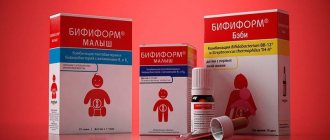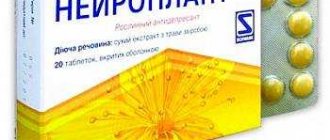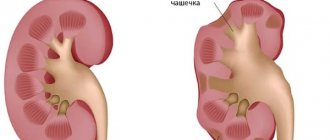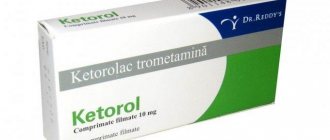Medicines for sore throat are pharmaceuticals intended to treat acute tonsillitis, as well as to alleviate the patient’s condition. Tonsillitis is a medical condition characterized by inflammation of the tonsils and the area around them. The name angina, which is actually synonymous with the medical one, has taken root in everyday life.
Tonsils or tonsils are a paired organ that is located in the throat and nasopharynx. It is formed by lymphoid tissue. Tonsils play an important role in protecting the human body from infections - with the help of produced leukocytes, they neutralize viruses and bacteria that enter the body along with the inhaled air. Thus, the tonsils are the first barrier standing in the way of dangerous microorganisms.
Figure 1 - Tonsillitis. Diagram of healthy and inflamed tonsils
Any person can get tonsillitis, regardless of gender, age and medical history, since the development of tonsillitis does not cause an immune response from the body. Children and adolescents aged 5 to 15 years are most often affected by the disease.
The development of the disease is rapidly increasing in nature with a sharp deterioration in the general condition of the patient. Tonsillitis is often confused with ARVI, a common viral respiratory disease; however, in order to avoid consequences, if improvement does not occur within 1-2 days, a visit to the doctor is necessary.
A sore throat suffered “on the legs” can cause subsequent rheumatoid heart damage, renal failure, angina pectoris and other diseases.
What medicines help with sore throat
Figure 5 - Excellent spray for sore throat Tantum Verde
Treatment of angina is aimed at improving the symptoms of the disease and reducing the risk of complications. Depending on what type of microorganism caused inflammation of the tonsils, antiviral or antibacterial therapy is prescribed.
Medicine for sore throat for adults and children is used in various dosages; when prescribing, age, body weight and the presence of allergic reactions are taken into account.
Cold and flu medications for sore throat
If a viral sore throat is being treated, the doctor may prescribe antiviral interferon drugs, drugs that can stimulate the activity of the immune system and the production of interferon, direct-acting agents.
The most effective protection against viral diseases is timely vaccination, which increases the body's resistance to the effects of viruses.
It should be remembered that a vaccine administered during an illness does not bring benefit; moreover, it can aggravate the situation, as it will actually lead to an increase in viruses in a weakened body.
Interferon and preparations containing it
Figure 6 - Drug containing interferon - Grippferon
Human leukocyte interferon is a protein body naturally produced in the human body to fight viral infection. The administration of drugs containing interferon increases their amount in the body by obtaining additional amounts from the outside. It is generally accepted that the use of these drugs is most effective from the onset of the disease, when its first signs appear. In laboratory conditions, interferon is obtained by exposing the protein to special bacteria.
Immunostimulants and interferon inducers
Figure 7 - An excellent drug that stimulates the body - Kagocel
This class of drugs stimulates the body's immune system. In addition, some medications help the body produce an increased amount of its own interferon, which has a positive effect on the patient’s condition.
Immunostimulants and interferon inducers are among the most effective antiviral agents.
Treatment with sore throat medications that contain interferon should be used with caution, especially in children, as they may cause allergic reactions. Contraindications include: impaired renal and liver function, severe heart disease, chronic hepatitis, cirrhosis of the liver, dysfunction of the central nervous system.
Direct acting cold medicines
The mechanism of action of direct-acting antiviral drugs (etiotropic drugs) is a direct “attack” of the active substance on the virus. Their use slows down the reproduction of the virus and reduces its penetration ability.
Effective medications for bacterial tonsillitis
Figure 8 - The best antibiotics for sore throat
When treating a sore throat with a bacterial form of infection, antibacterial drugs or antibiotics are prescribed. They have a selective direct effect on certain types of bacteria.
Most often, penicillin antibiotics containing penicillin, a special type of fungus that feeds on bacteria, are used to treat sore throat. The use of these drugs is especially effective for tonsillitis caused by group A streptococci.
If a patient develops allergic reactions to a penicillin series of drugs for angina, therapy with macrolides and cephalosporins is used. For the treatment of acute forms of tonsillitis, their use is as effective as taking penicillin drugs.
If the patient cannot swallow medications as a result of complications, it is administered intravenously. Return to oral administration as soon as possible.
It is necessary to complete the prescribed course of antibiotic treatment, despite the fact that the general condition of the body may improve before its completion.
It should be remembered that the use of antibiotics creates additional stress on the gastrointestinal tract and liver, so while taking medications you should refrain from drinking alcohol and smoking, and adhere to a balanced diet.
Medicines to relieve sore throat symptoms
When treating a sore throat, medications are prescribed to alleviate the patient's condition. These include symptomatic drugs that relieve sore throat, nonsteroidal anti-inflammatory drugs, and antiseptics. In acute situations, corticosteroids can be used to improve the patient's condition.
Additionally, in case of high fever, antihistamines are prescribed to reduce the side effects of antiviral drugs or antibiotics. Treatment aimed at restoring intestinal microflora is also used.
Side effects
Side effects include:
- Digestive problems. This is the most common side effect. Anyone experiencing severe or prolonged symptoms should stop taking antibiotics and talk to their doctor.
Severe symptoms include:
- blood or mucus in stool;
- severe diarrhea;
- intense cramping or pain in the abdomen;
- fever;
- uncontrollable vomiting.
- Fungal infection. Antibiotics are designed to kill harmful bacteria. However, they sometimes kill the good bacteria that protect people from fungal infections.
Symptoms of common fungal infections include:
- vaginal itching, swelling and soreness;
- pain and burning sensation during sexual intercourse and urination;
- abnormal vaginal discharge, usually white to gray;
- fever and chills;
- white, thick coating in the mouth and throat;
- pain while eating or swallowing;
- white spots on the throat, cheeks, roof of the mouth, or tongue;
- loss of taste;
- cottony feeling in the mouth.
- Photosensitivity. Many types of antibiotics make the skin more sensitive to the sun (photosensitive).
- Staining of teeth and bones. Some studies show that 3% to 6% of people who take tetracycline develop stains on their tooth enamel. The staining is irreversible in adults because their teeth do not change.[2]
Talk to your doctor about changing your antibiotic if your medication causes teeth to become discolored or stained.
- Kidney failure. The kidneys are responsible for removing toxins, including medications, from the blood and body through urine. Doctors often prescribe lower doses of antibiotics for older people or people with kidney disease.
Causes of the disease
Figure 2 - One of the causes of sore throat may be a previous illness
When the immune system of the human body, due to various reasons (hypothermia, previous illness, etc.), is weakened, the tonsils may not be able to cope with the accumulations of viruses or bacteria that form on their surface. In this case, microorganisms begin to actively multiply, threatening human health. The body takes additional actions and the inflammatory process of the tonsils begins - as a result of an increase in temperature, most viruses and some bacteria die. Sore throat is characterized by an increase in body temperature, sometimes to high values, sore throat, and other unpleasant symptoms.
Depending on what microorganisms caused the inflammatory process, viral and bacterial forms of sore throat are distinguished.
Viral tonsillitis, as the name suggests, is caused by the accumulation of various types of viruses on the surface of the tonsils: influenza virus, rhinovirus, enterovirus, adenovirus. In some cases, the cause of the disease is the herpes virus, cytomegalovirus, human immunodeficiency virus, and Epstein-Barr virus.
Under unfavorable conditions, a viral infection can transform into a bacterial form. This happens as a result of the creation on the surface of the tonsils of a favorable environment for the proliferation of bacteria when the body’s resistance to viral disease is insufficient. In most cases, the bacterial form of sore throat is caused by group A streptococcus bacteria, but infections caused by gonococci, chlamydia, mycoplasma, staphylococci and some other types of bacteria also occur.
Treatment of nursing mothers
If a nursing mother has a sharp rise in temperature or her health has worsened, then this is not a reason to stop breastfeeding, since milk is produced despite all the mother’s health problems. Once the diagnosis is confirmed, it is worth starting to take antibiotics, but breastfeeding can be continued as they do not affect it. Among the drugs that are suitable for pregnant women, the following should be highlighted:
- Phenoxymethylpenicillin and Ampicillin are medicinal medications that are ideal for mothers, since they are based on the already familiar penicillin.
- Azitro Sandoz is a macrolide prescribed for follicular tonsillitis, which has antibacterial properties. But the main disadvantage of this drug should be highlighted - long-term use can cause gastrointestinal tract upset. Therefore, it is strongly recommended to alternate it with penicillin-containing medications.
Follicular tonsillitis is a rather serious disease, and its treatment is carried out with standard antiviral and antibacterial antibiotics, which have proven themselves well over a long time. For example, it could be: Penicillins, Erythromycin, Cephalosporins. Antibiotics are prescribed by a doctor who takes into account all the characteristics of the patient’s body and the dynamics of the development of the disease. It should also be noted that the treatment of this type of sore throat is not very different from purulent, catarrhal or lacunar sore throat.
In what cases are antibiotics prescribed for a sore throat?
If a sore throat is caused by a viral infection, then treatment with antibiotics is useless. Antibiotics are prescribed only to eliminate a bacterial infection. To prescribe the most appropriate medicine, the doctor must find out which pathogenic bacteria are causing the inflammatory reaction in the upper respiratory tract. To make a diagnosis, the doctor takes a smear from the patient for bacteriological culture.
- In case of an inflammatory reaction in the throat, a sick person is prescribed antibacterial agents in the form of tablets, injection solutions, absorbable lozenges, and sprays. These medications are effective against bacterial tonsillitis and tonsillitis.
- With viral pharyngitis, accompanied by inflammation of the tonsils and mucous membranes of the pharynx, antibiotic drugs are powerless.
Taking antibiotics is indicated if the following symptoms are observed:
- body temperature rises rapidly, jumps to 38 – 39°C;
- tonsils become inflamed and covered with purulent plugs;
- the lymph nodes in the neck and under the lower jaw are noticeably enlarged;
- intoxication of the body is felt;
- complications arise - otitis media, bronchitis, sinusitis, pneumonia.
How safe are cheap antibiotics and is it worth taking them?
There is practically no difference in the safety of different antibiotics. Both cheap and expensive drugs are contraindicated during lactation and are not prescribed for individual intolerance; when assessing side effects, each drug should be considered separately. Therefore, in a pharmacy, out of two similar drugs based on the same antibiotic, you can safely buy the one that turns out to be more affordable. If you have serious doubts, you should call your doctor and consult with him.
Rules for the use of azithromycin
3 antibiotic tablets for sore throat are prescribed only to adult patients. The fact is that for children, azithromycin is available in the form of a powder for preparing a suspension and it is irrational to prescribe tablets for them.
Each tablet of the drug is taken once a day either an hour before or 2 hours after a meal. You can drink it with clean water. Accordingly, three antibiotic tablets are taken over three days, after which the sore throat is treated only symptomatically. Attempts to supplement the use of azithromycin for angina with other antibiotics are dangerous, as they can cause the development of fungal diseases.
Possible regimens for taking azithromycin (the second - for 5 days - is preferable and more effective)
Another treatment regimen is that 3 tablets of azithromycin for sore throat are taken for 5 days. To do this, the first tablet is drunk in its entirety on the first day, the remaining two are each divided into two parts and half is drunk per day. As a result, they are enough for another 4 days of use.
It is also useful to read: Flemoxin did not work for a sore throat: what to do?
Practice shows that a regimen of taking azithromycin for three days is less effective than using it for 5 days or using other macrolides in longer courses. With it, complications of angina often develop, from which the medicine should protect. Therefore, if possible, this medicine should be taken for 5 days, and switch to a three-day regimen only if side effects clearly develop and there is a need to complete treatment as soon as possible.











